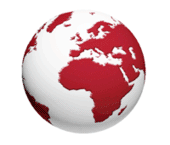THE FUTURE OF TECHNOLOGY: Applications of Metallic Hydrogen in Science and Industry
1 year ago
Gibraltar: Thursday, 28 November 2024 – 11:07 CEST
THE FUTURE OF TECHNOLOGY: The Potential of Metallic Hydrogen – Applications for Science and Industry
By: Iain Fraser – Guest Contributor
GEÓPoliticalMatters.com/
First for Geopolitical Intel
Metallic hydrogen, a phase of hydrogen predicted to form under extreme pressures, has been a subject of significant scientific interest due to its unique properties and potential applications. As researchers inch closer to its stabilization and practical utilization, its commercial applications and geopolitical ramifications could be transformative.
Commercial Applications
1. Revolutionizing Energy Storage
Metallic hydrogen is predicted to be a room-temperature superconductor, meaning it could conduct electricity without resistance. This property could revolutionize energy storage and transmission. Traditional power grids lose energy due to resistance in wires, but with metallic hydrogen, these losses could be nearly eliminated. Batteries and capacitors made with metallic hydrogen could store immense amounts of energy more efficiently, paving the way for more reliable renewable energy integration and improved performance of electronic devices.
2. Propulsion Systems in Space Exploration
Metallic hydrogen has been touted as a potential “holy grail” for rocket fuel. Its energy density is expected to far exceed that of conventional fuels, potentially allowing spacecraft to achieve higher speeds with smaller fuel loads. This would dramatically reduce the cost of launching payloads into orbit and enable deeper exploration of the solar system. The resulting advancements could catalyse new industries, such as space mining, colonization, and tourism.
3. Advanced Electronics
The superconductivity of metallic hydrogen could lead to the development of ultrafast computing systems and more efficient electronic components. Data centers and quantum computing platforms, for instance, could become far more energy-efficient and compact. Such breakthroughs would accelerate progress in artificial intelligence, cryptography, and other high-tech fields.
4. Breakthroughs in Medical Technology
Metallic hydrogen’s properties could find applications in medical imaging and diagnostics. For example, superconducting materials are integral to MRI machines. More efficient and compact devices could enhance accessibility and precision in medical diagnostics globally.
5. Transportation Innovations
Superconducting materials like metallic hydrogen could revolutionize transportation by enabling maglev (magnetic levitation) trains to operate with less energy and at higher speeds. This could transform global travel infrastructure, offering sustainable alternatives to traditional aviation and road transport.
Geopolitical Implications
1. Shift in Energy Markets
If metallic hydrogen becomes a viable material for energy storage and transmission, it could disrupt the fossil fuel industry. Countries rich in hydrogen production capabilities, such as those with abundant water and renewable energy sources for electrolysis, might gain geopolitical influence. Conversely, oil-dependent economies could face economic decline, potentially reshaping global power dynamics.
2. Space Race Intensification
The development of metallic hydrogen as a rocket fuel could ignite a new space race. Countries with advanced research capabilities, such as the United States, China, and the European Union, may vie for dominance in this domain. Space exploration could shift from a collaborative to a competitive arena, with nations seeking to secure access to extra-terrestrial resources and strategic positions in space.
3. Technological Inequality
The nations and corporations that pioneer metallic hydrogen technologies might enjoy significant economic and technological advantages, exacerbating global inequality. Developing countries could struggle to compete, creating a technological divide that mirrors or surpasses existing inequalities in other high-tech sectors.
4. Strategic Resource Control
The production of metallic hydrogen requires extreme pressures, often achieved using advanced materials like diamond anvils. Control over the materials and technologies necessary for its synthesis could become a point of contention, much like rare earth metals are today. Nations or corporations that dominate these supply chains could wield disproportionate influence over the global economy.
Military Applications
The potential of metallic hydrogen to enhance energy storage and propulsion systems could extend to military technologies. From more efficient power sources for directed-energy weapons to advanced propulsion for submarines and aircraft, the material could become a cornerstone of future defence strategies. This could escalate arms races and heighten tensions between global powers.
Conclusion
Metallic hydrogen holds immense promise across multiple industries, from energy and transportation to space exploration and medical technology. However, its potential also carries significant geopolitical implications, from reshaping energy markets to intensifying global competition in technology and defence. While its practical stabilization and mass production remain challenges, the pursuit of metallic hydrogen could redefine the balance of power and progress in the 21st century. Whether this leads to greater global cooperation or intensified competition will depend on how nations and corporations manage its development and deployment.
Post Impressions:

About GEÓ NewsTeam
Broadcasting Daily from our Gibraltar Newsroom our dedicated desk editors and newsdesk team of Professional Journalists and Staff Writers work hand in hand with our established network of highly respected Correspondents & regional/sector specialist Analysts strategically located around the Globe (HUMINT)
Contact Us: newsteam@geopoliticalmatters.com
Author
-

Broadcasting Daily from Gibraltar Newsroom our dedicated desk editors and newsdesk team of Professional Journalists and Staff Writers work hand in hand with our established network of highly respected Correspondents & regional/sector specialist Analysts strategically located around the Globe (HUMINT) Our individual Desk Editors all have specific subject authority as Journalists, Researchers and Analysts covering AI, Autonomous Transport, Banking & Finance Technology, Cybersecurity, GeoCrime, Defence 3.0, Energy & Renewables, BioEconomy and Transport & Logistics.
View all posts
Contact the NewsTeam at newsteam@geopoliticalmatters.com










